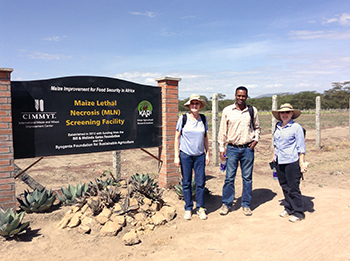Latest News Archive
Please select Category, Year, and then Month to display items
05 May 2023
|
Story EDZANI NEPHALELA
|
Photo Supplied
![]()
This audit process will assess the resources available and required for the implementation of a Language policy framework for higher education (2020) – such as the development of multilingual terminologies, translation services for teaching and learning materials, campus signage, as well as various multimedia collateral – including their quality and relevance to the needs of the students and faculty. The audit will include an assessment of existing resources and whether they are furthering implementation goals, and may also include the gathering of feedback from students and faculty to identify improvement areas.
Dr Nomalungelo Ngubane, Director of the UFS Academy for Multilingualism, said the process will help the UFS identify the essential languages resources that are available for the successful implementation of the 2020 Language Policy for Higher Education framework (LPHE). “The audit will identify how much has been done at the UFS and which institutions we can collaborate with, for example, in the development of Sesotho, so that we do not reinvent the wheel, but we close the gaps.”
Once the audit is completed, the institution will develop a plan for resource allocation to address the identified gaps. This may involve acquiring new resources, upgrading existing ones, or reallocating existing resources better to meet the needs of students, staff, and faculties.
Due to the impact this audit will have on various stakeholders, all staff and students are encouraged to participate. To attend the audit, please RSVP here by 30 May 2023.
Maize breeder rewarded for his research to enhance food security in Africa
2016-08-26

Prof Maryke Labuschagne from the UFS Department
of Plant Sciences, Berhanu Tadesse Ertiro, a
postgraduate student in Plant breeding at the UFS,
and Dr Peg Redinbaugh of the US Department of
Agriculture in Wooster, Ohio.
Photo: Supplied
Ethiopia is one of the African countries, deeply affected by food insecurity. Berhanu Tadesse Ertiro, a citizen from Ethiopia started his career - after graduating with his undergraduate degree in 2003 - as a junior maize breeder. Today he is pursuing his doctorate degree in Plant Breeding at the University of the Free State (UFS).
His research had made some great strides in contributing to food security in Africa. He recently received a fellowship from the prestigious Norman E. Borlaug Leadership Enhancement in Agriculture Program (Borlaug LEAP).
This fellowship is only awarded to students whose research has relevance to the national development of the student’s home country or region. The aim of these fellowships are to enhance the quality of thesis research of graduate students from developing countries who show strong promise as leaders in the field of agriculture and related disciplines.
Low soil fertility a major maize production constraint
Berhanu is also a visiting student at the International Maize and Wheat Improvement Center (CIMMYT) in Kenya, where he is running field experiments for his PhD thesis dissertation. His research focuses on Nitrogen Use Efficiency (NUE) and Maize Lethal Necrosis (MLN) disease tolerance. Low soil fertility and MLN are among the major maize production constraints in eastern and southern Africa, where maize is staple food.
Such hybrids have the potential to contribute greatly
towards food security among farmers and their
families through increased productivity.
The use of new tools could increase breeding efficiency and reduce the time needed for the release of new stress tolerant hybrids. Such hybrids have the potential to contribute greatly towards food security among farmers and their families through increased productivity. Berhanu is looking at the feasibility of genome wide selection for improvement of NUE in tropical maize.
Fellowship includes mentorship and supervision across borders
The programme supports engaging a mentor at a United States university and Consortium of International Agricultural Research Centers (CGIAR). During his fellowship, he will be supervised and mentored by Prof Maryke Labuschagne of the UFS, Prof Rex Bernando, a professor of Corn Breeding and Genetics at the University of Minnesota and Dr Biswanath Das of CIMMYT, Kenya.
As a LEAP fellow, Berhanu was invited to attend the 30th Annual World Food Prize events to take place in October 2016, in Des Moines, Iowa. The week will include his attendance at the Board for International Food and Agricultural Development meeting, participation at side-events at the Borlaug Dialogue International Symposium and the World Food Prize.